War
Bomb Proof Eye Guards

Mechanix Illustrated - Mar 1941
Posted By: Alex - Wed Jul 10, 2024 -
Comments (1)
Category: War, Weapons, 1940s, Eyes and Vision
The Complacent Americans
One such gem is a Civil Defense "scare" album called THE COMPLACENT AMERICANS that simply must be heard to be believed. This LP - with its bright orange mushroom cloud cover and its hyperbolic advisories to sensitive listeners - could well have been produced by that genius of exploitation William Castle. But actually it was recorded under the stately auspices of the Office of Civil Defense, a sub-branch of the U.S. government (later replaced by FEMA).
Posted By: Paul - Thu Feb 29, 2024 -
Comments (0)
Category: PSA’s, War, Vinyl Albums and Other Media Recordings, Atomic Power and Other Nuclear Matters, 1960s
The Belgian-Colombian War
A short essay here has a few more details.
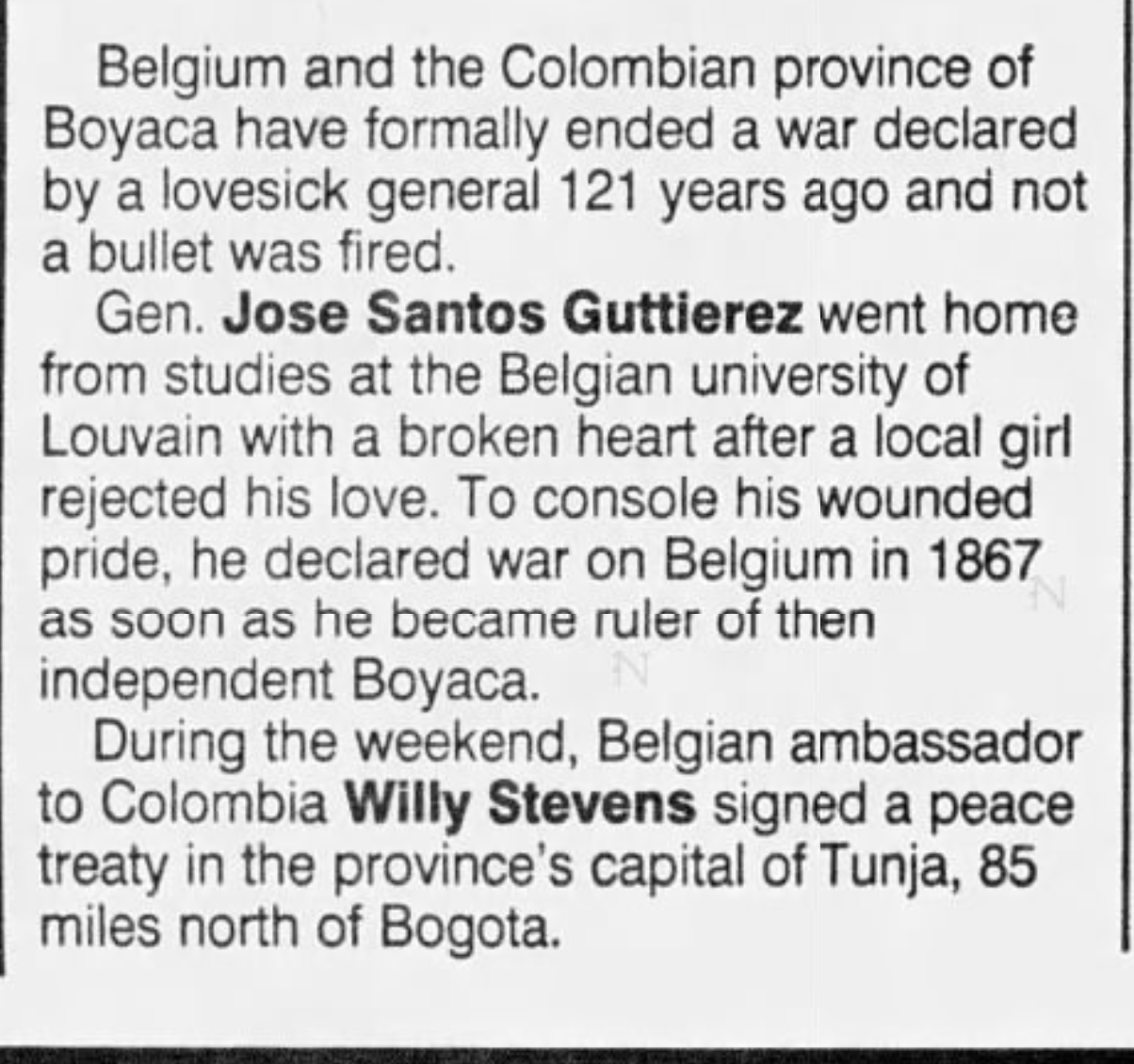

Posted By: Paul - Tue Feb 13, 2024 -
Comments (0)
Category: War, Europe, South America, Nineteenth Century, Twentieth Century, Love & Romance
“The Family Circus” Goes to War
No one likes to make fun of THE FAMILY CIRCUS more than I. In fact, if you go beyond the jump, you'll see a couple of samples of the re-captioned cartoons I frequently post on Facebook.But I have to say that I have new admiration for Bil Keane after reading about his somewhat gutsy and altruistic trip to Vietnam.

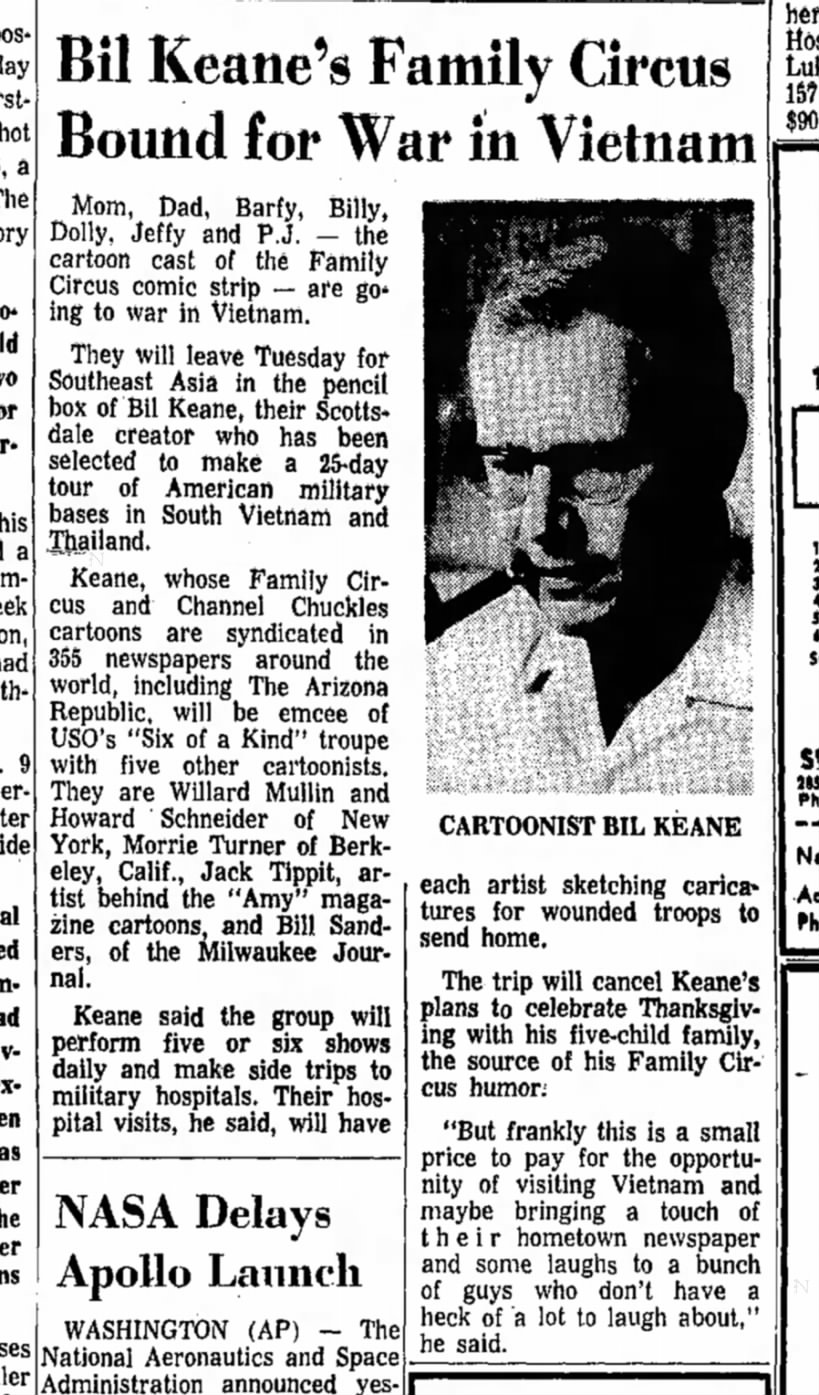

More in extended >>
Posted By: Paul - Mon Jan 22, 2024 -
Comments (2)
Category: War, Comics, 1960s, Asia
Pigeon Drones
Read all about the wartime practice of mounting cameras on pigeons.At Wikipedia.
And at Public Domain Review, where there are more pictures.
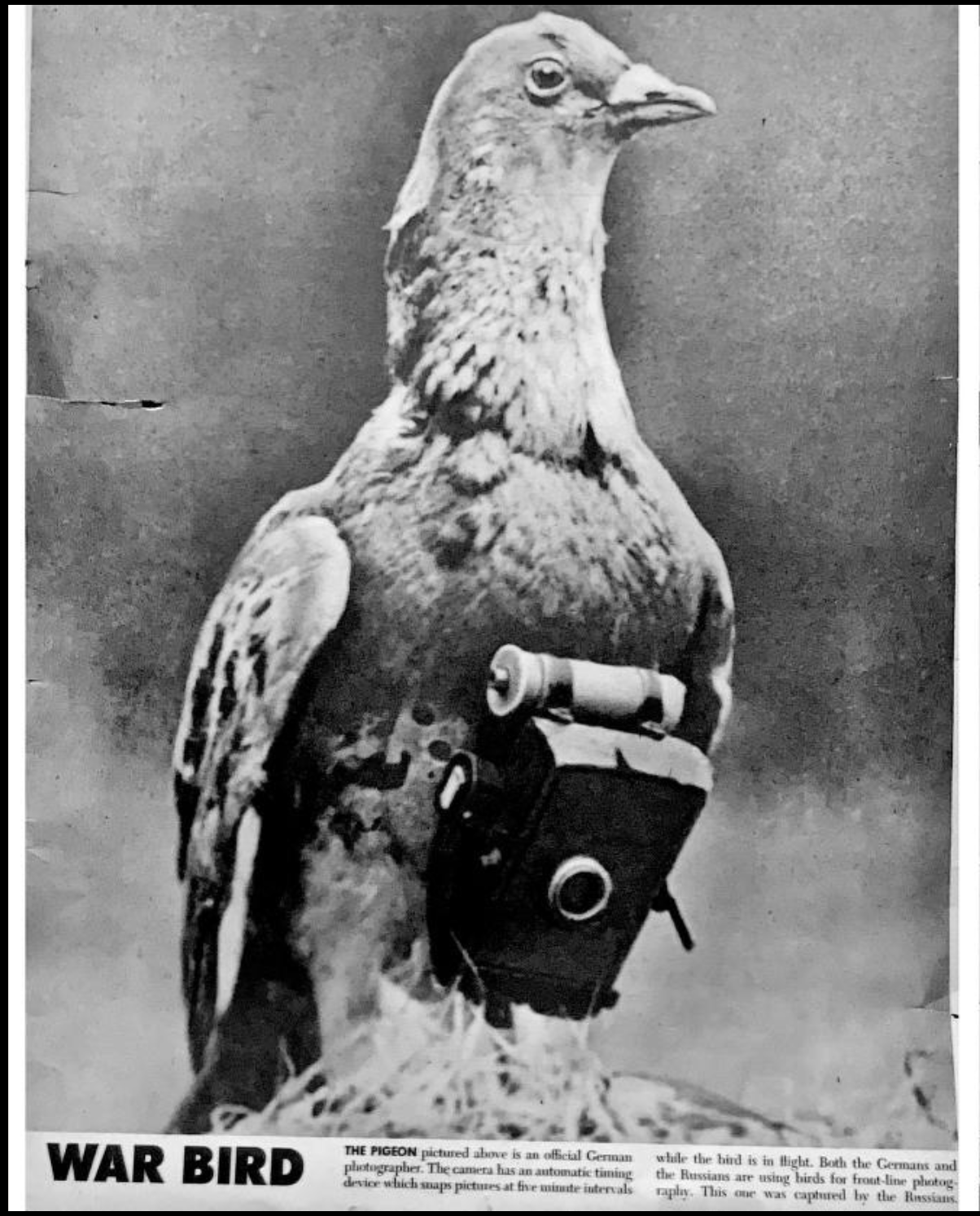
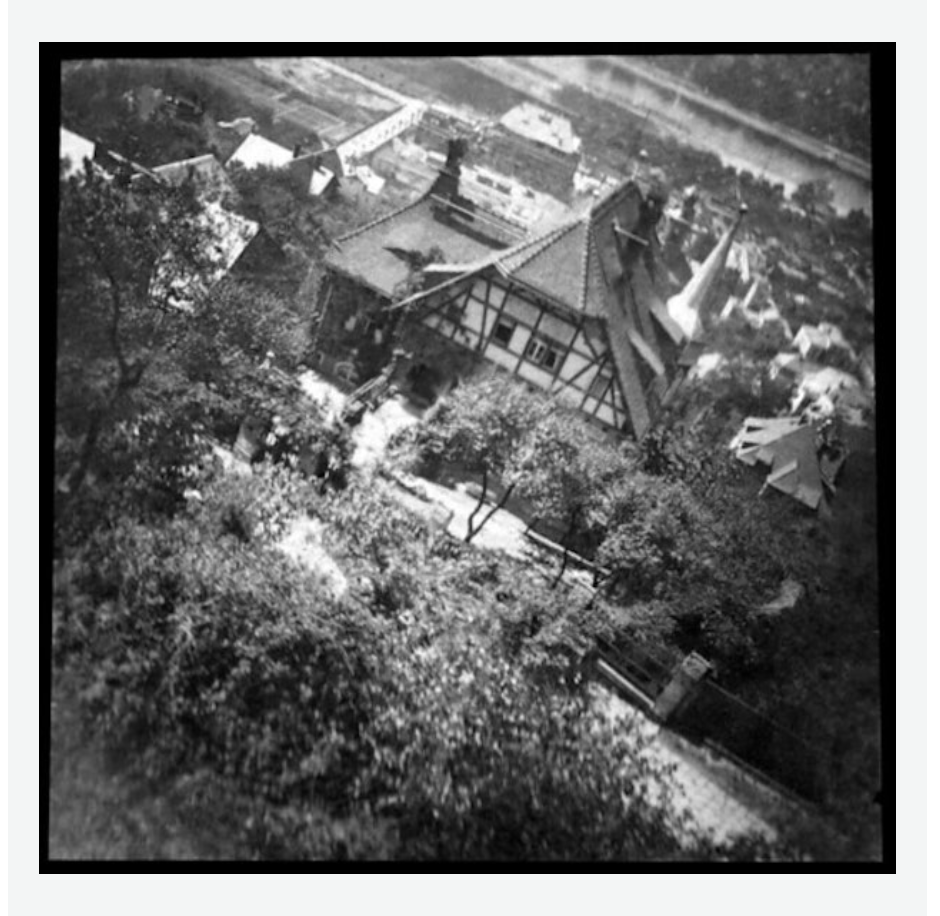
Posted By: Paul - Wed Jan 17, 2024 -
Comments (0)
Category: Animals, Inventions, Photography and Photographers, War, Twentieth Century
Sedimentary Geology and the Civil War
I'm sure Hippensteel's new book (Sand, Science, and the Civil War) is quite interesting (especially if you're a Civil War buff), but the extreme narrow focus of his argument made me laugh. From a review:More info: University of Georgia Press
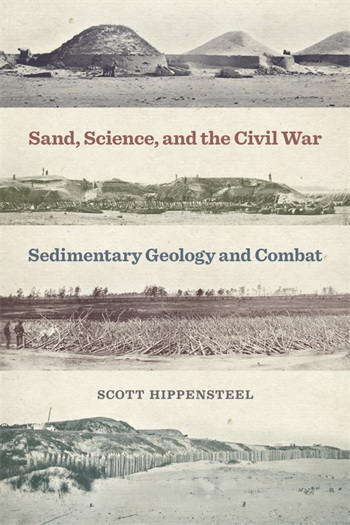
Posted By: Alex - Fri Dec 01, 2023 -
Comments (4)
Category: War, Environmentalism and Ecology, Books, Nineteenth Century
Christmas in Vietnam
Now that it's December 1st, I feel we can start the Christmas music season here at WU.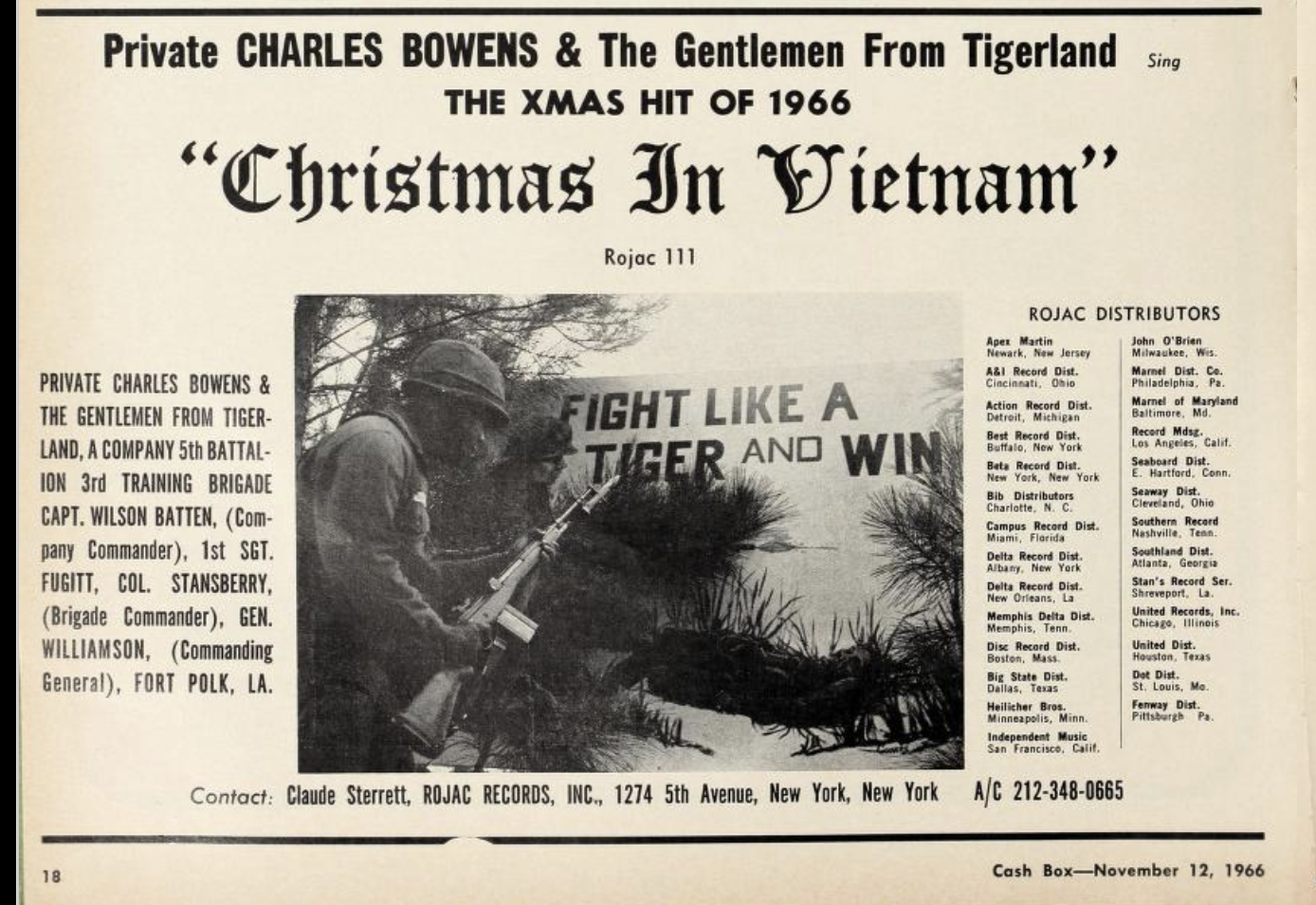
Posted By: Paul - Fri Dec 01, 2023 -
Comments (1)
Category: Holidays, Music, War, 1960s
Constipation and Political Unrest
I haven't been able to figure out what the title of the article referenced below was, since I can't find archived copies of Blackwood's magazine from the 1970s. The hypothesis, "that a fundamental cause of the violence... in Irish politics may well be constipation," is strange. It might make one wonder about the role of constipation in other conflicts around the world.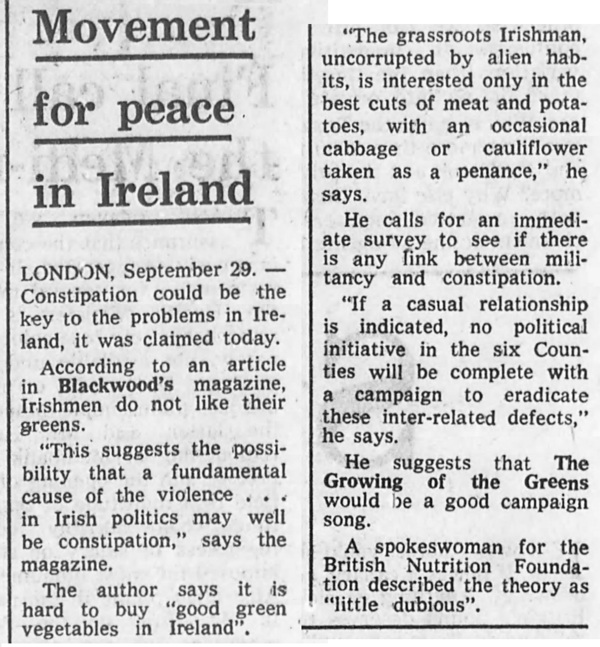
The Melbourne Age - Sep 30, 1976
Posted By: Alex - Fri Nov 17, 2023 -
Comments (2)
Category: Violence, War, Vegetables, 1970s
Reassuring news in the event of a nuclear war
The reassuring news, according to Dr. G.D. Kersley, was that if you've had one nuclear bomb dropped on you, you're unlikely to have another.Kersley's article appeared in the Aug 9, 1958 issue of the British Medical Journal. You can read it here. The reassuring comments are on the final page, in the conclusions section.
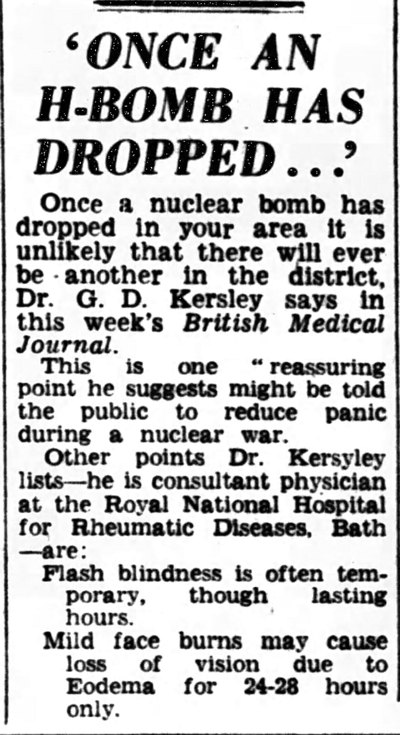
Birmingham Post - Aug 8, 1958
Posted By: Alex - Mon Nov 06, 2023 -
Comments (2)
Category: War, Weapons, Atomic Power and Other Nuclear Matters, 1950s
The Scythe Tree
Atlas Obscura article.Roadside America article.
Local newspaper article.
James Wyman Johnson attended a Union army recruitment meeting at the Vail country schoolhouse in October 1861, about five months after the start of the Civil War. As he was mowing with his scythe the next morning, he decided to enlist. When he returned to the house, he hung his scythe in the small tree, about 8 inches in diameter and just a few feet tall, near the kitchen door. He told his parents he was going to enlist and remarked that the scythe was to stay hanging on the tree until he returned from war.... He died on May 22, 1864, from his wounds and was buried in an unknown grave.... Years passed and the handle fell away, the tree grew and gradually surrounded the blade. The long scythe blade only protruded a few inches outside the mammoth tree trunk.
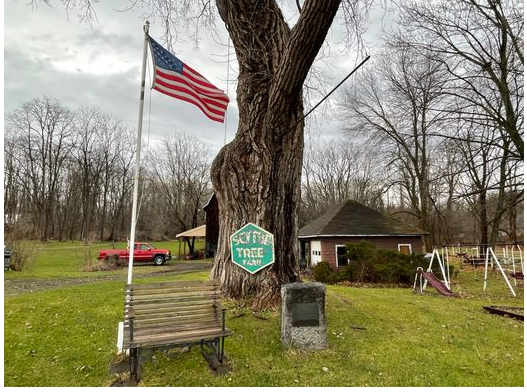
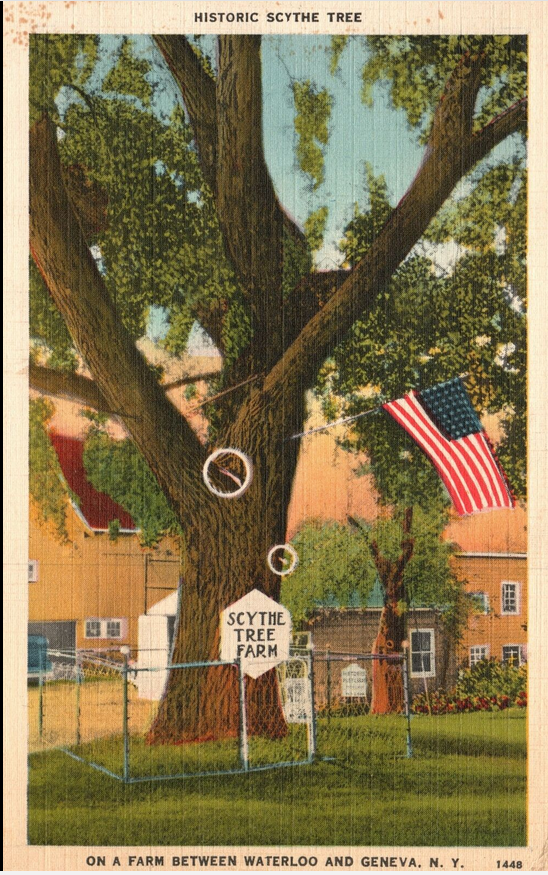
Posted By: Paul - Fri Nov 03, 2023 -
Comments (2)
Category: Agriculture, Death, Family, War, Fables, Myths, Urban Legends, Rumors, Water-Cooler Lore, Nineteenth Century

| Who We Are |
|---|
| Alex Boese Alex is the creator and curator of the Museum of Hoaxes. He's also the author of various weird, non-fiction, science-themed books such as Elephants on Acid and Psychedelic Apes. Paul Di Filippo Paul has been paid to put weird ideas into fictional form for over thirty years, in his career as a noted science fiction writer. He has recently begun blogging on many curious topics with three fellow writers at The Inferior 4+1. Contact Us |




